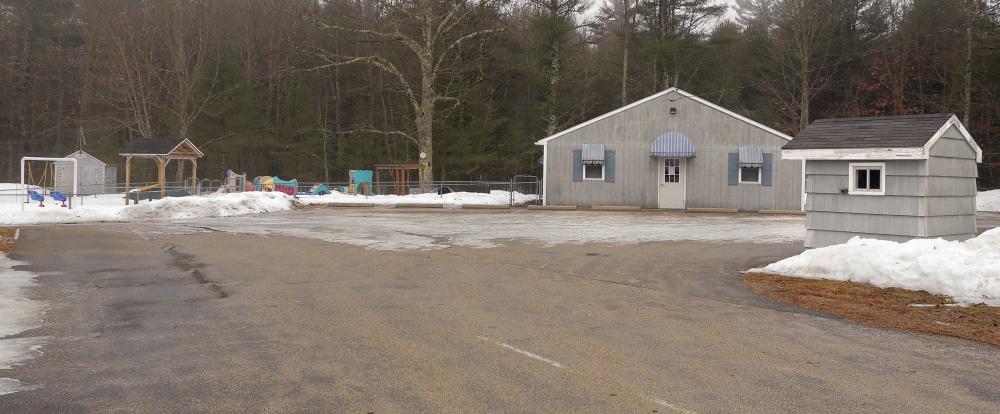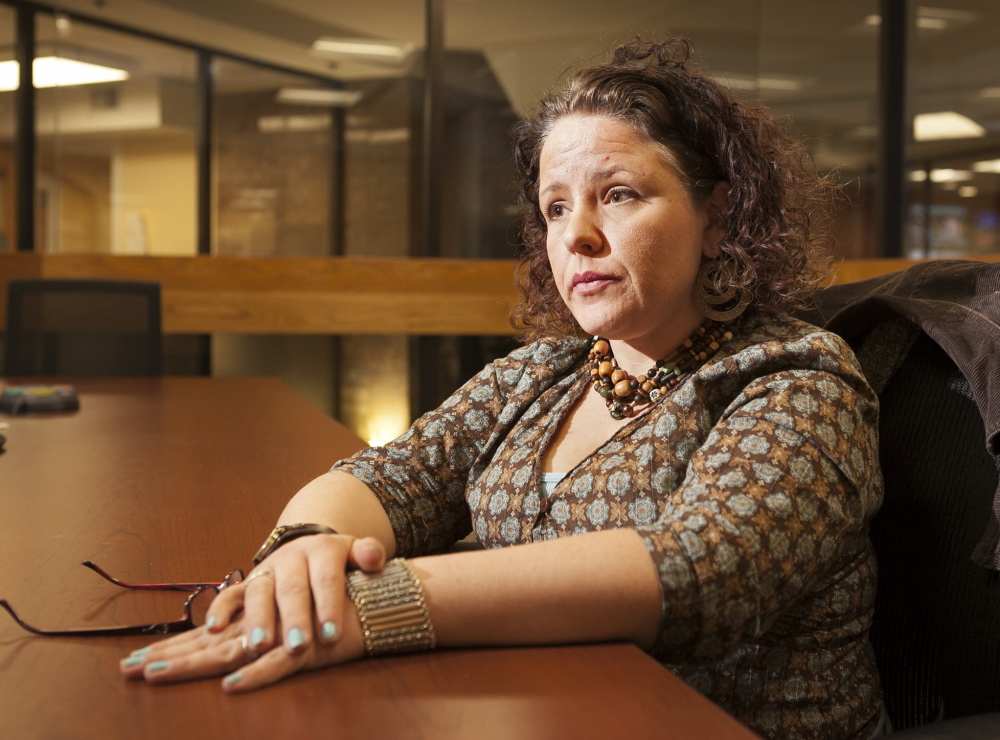A state child care licensing supervisor who failed to take action for more than a year after inspectors discovered abuse at a Lyman day care center has been reassigned to other duties within the department and is no longer making day care licensing decisions, a top state official said Friday.
In addition, the Maine Department of Health and Human Services is overhauling how it handles child care licensing cases and significantly expanding its licensing staff, said Kenneth Albert, director of the department’s Division of Licensing and Regulatory Services.
Albert said the licensing division is making the changes after an internal review, which was spurred by how the state handled the Sunshine Child Care & Preschool case in Lyman, where state inspectors concluded children were force-fed milk, “slammed” to the ground, had soap put in their mouths and were otherwise abused.
The Lyman case came to light in media reports starting in mid-January.
“There has already been a tremendous cultural shift among our staff,” Albert said. The department will begin hiring additional inspectors – nearly doubling its licensing workforce – within the next month, he said.
A former child care inspector who sharply criticized the department on Feb. 27 and helped trigger a state investigation into the licensing division said she’s encouraged that Albert reassigned the manager, Wes Uhlman, and is leading other reforms.
“This would be an incredible amount of change in a short amount of time. If he (Albert) is able to pull this off, he would be a hero,” said former employee Nicole White.
REASSIGNED
Albert said Uhlman – a child care licensing compliance officer who oversaw the Lyman case – has been reassigned to other duties but is still working for the department.
“Yes, there has been a change. (Uhlman) is no longer the one making the decisions,” said Albert, although Uhlman’s input could be sought.
When asked by the Sunday Telegram about possible disciplinary action against Uhlman, Albert said: “There is an employee who has been the subject of an investigation. As for the results of that investigation, I can’t comment.”
Albert said he couldn’t discuss the personnel matter further.
Uhlman, who has worked in child care licensing for more than a decade, couldn’t be reached for comment Friday.
On Feb. 27, former DHHS child care inspectors Charley LaFlamme and White went public with their criticism of the agency’s licensing division. In an interview with the Portland Press Herald, they described Uhlman as a major roadblock to enforcing violations, saying he would often sit on reports for several months without making any decisions on whether day cares that were violating state standards should continue to be licensed or closed. A state oversight agency, the Office of Program Evaluation and Government Accountability, is now investigating the state’s child care licensing division to determine the extent of the problem.
In the Lyman case, it took more than a year of detailed abuse reports by inspectors to prod DHHS to make a decision, according to agency documents, LaFlamme, a former Sunshine parent and a former Sunshine employee.
The Press Herald obtained DHHS documents that show Uhlman took no action on the Sunshine case in 2012 despite an inspector’s report that determined abuse occurred at the day care, including evidence of “physical abuse” and numerous other licensing violations.
An October 2012 letter penned by Uhlman to the day care’s owners reminded them that hitting and slapping children, shoving their faces onto mats and other abuses were against state licensing regulations, but he did not explicitly say those events occurred at Sunshine. He also wrote that no licensing action would be taken.
When similar allegations surfaced the following year, and an inspector’s report again concluded abuse occurred, the state gave Sunshine a conditional license in August 2013, which is similar to being put on probation. The day care operated for another four months but closed on its own in January, when the media reported on the case and parents started pulling their children out of Sunshine. Sunshine’s owners, Cheryl and Daniel Dubois, have denied the allegations.
Rep. Richard Farnsworth, D-Portland, and Sen. Margaret Craven, D-Lewiston, the legislative sponsors for the government accountability office’s investigation into child care licensing, said Uhlman should be fired for his inaction in the Sunshine case because children were put at risk for an extended period.
“In the private sector, he would have been fired immediately,” Craven said.
Farnsworth said the Lyman case was such a serious error that Uhlman should not be allowed to continue working for the state.
“We should have said, ‘sayonara.’ If we were going to reassign him, it should have been at the custodial level,” Farnsworth said.
Albert, the DHHS licensing director, said hiring and firing decisions are the role of the executive branch, but that the legislators are welcome to provide input.
CHANGES
Farnsworth, however, said other changes promoted by Albert are promising.
“These sound like positive steps in the right direction. If they can make the changes – great. That’s what we want,” Farnsworth said. Albert had previously announced that inspection reports will be placed online, as many other states do, so that parents can judge for themselves the problems inspectors find at each day care.
Albert said Friday that the licensing division will improve the way inspection reports are processed so that licensing decisions are made in a timely manner.
The inspection reports should be completed within 35 days, and once finished, will be reviewed by a panel instead of being funneled to a supervisor. The panel will meet weekly, Albert said, ensuring that no long gaps occur between when the reports are finished and when enforcement action, if necessary, takes place.
Panel members will include a cross-section of licensing employees, such as inspectors and supervisory personnel. If the panel cannot reach consensus on a recommendation, the report will be sent to upper management for a decision.
Albert said the focus will be on teamwork, with employees encouraged to frankly assess each day care.
“We really want the in-the-field personnel to inform the process,” said Albert, who expects the new panel will begin meeting in the next 30 days.
Also within the next month, Albert said, DHHS will hire an additional two supervisors and eight or nine inspectors – bringing the number of state child care inspectors to about 20. That will bring caseloads down to about 100 day care facilities per inspector, which is close to the national average, according to the U.S. Department of Health and Human Services, Albert said.
Currently, inspectors each carry caseloads of about 180 day cares, Albert said. Maine’s ratio was among the worst in the nation, according to a national advocacy group, Child Care Aware of America.
White, the former DHHS inspector, said the inspectors will be able to accomplish much with a 100-facility caseload.
“It would make a dramatic difference in how inspectors can do their job,” White said. “It would be almost ideal.”
FEDERAL FUNDING
Albert said Maine will also make sure inspectors’ time is being used efficiently by focusing attention on day cares where violations are found, rather than reinspecting day cares that consistently earn high marks.
The $1.3 million cost of expanding the program will come from unspent money in the Child Care Development Fund, a federal block grant program that supports a number of different programs, including child care vouchers for low-income parents. No programs will be cut to pay for the additional staff, Albert said.
But Bill Hager, public policy director of the Alliance for Children’s Care, a trade association representing day care facilities, said the reason there are unused funds in the Child Care Development Fund is because it’s difficult for parents to cut through red tape and obtain a voucher to help them pay for day care.
“There should be a line around the block for those vouchers,” Hager said. “No one is having a voucher taken away from them, but there will be fewer vouchers to give out.”
Hager said the other reforms detailed by Albert, who became head of the licensing division in 2012, will be positive changes for the program.
LaFlamme, the former DHHS inspector, said the ideas Albert is touting – including having a panel review cases and reducing caseloads for inspectors – were brought up many times in the past but ignored. LaFlamme said he’s still skeptical that real change will come about because DHHS leadership is motivated to look good for the media. When no one was paying attention, they didn’t care to make the changes, LaFlamme said.
“Because their jobs are on the line, now they’re willing to do these things,” LaFlamme said. “They’re 10 years late, and kids have suffered.”
Joe Lawlor can be contacted at 791-6376 or at:
jlawlor@pressherald.com
Twitter: @joelawlorph
Send questions/comments to the editors.





Success. Please wait for the page to reload. If the page does not reload within 5 seconds, please refresh the page.
Enter your email and password to access comments.
Hi, to comment on stories you must . This profile is in addition to your subscription and website login.
Already have a commenting profile? .
Invalid username/password.
Please check your email to confirm and complete your registration.
Only subscribers are eligible to post comments. Please subscribe or login first for digital access. Here’s why.
Use the form below to reset your password. When you've submitted your account email, we will send an email with a reset code.